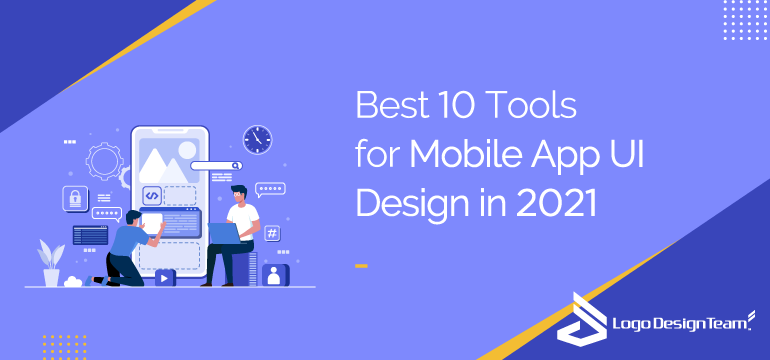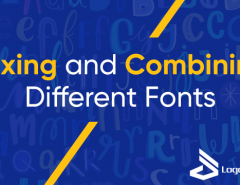What are the users evaluating first of all when they see an app in the app store?
Of course – the app design. The design forms further user behavior: downloads, installs, app use or pass by. Thus, the creation of the application plays a significant role in the very beginning of the interaction with your product.
The need for mobile applications is increasing every day. The competition is getting stronger, and there are more and more mobile applications. How to stand out from other apps? How to focus on the design of your application? In this article, we are going to talk about the ten best user interface design tools.
Techcrunch, in its year’s best apps by using data from Google, found that the simple and straightforward design of the application attracted more users to the application. But to come to a plan that will appeal to the user and make users click on the “Download” button, you have to work hard.
Understanding modern UI design tools can be done by carefully examining trends in the UI design market.
The critical factors for good user interface design are:
1. Compliance with advanced platform functions (iOS, Android, or others)
2. Stable work
3. Intuitive and straightforward to use
What tools will help designers to implement a relevant and attractive user interface for the application?
1. Adobe Photoshop
Good old Photoshop is still one of the favorite tools of designers. However, to use it effectively, you will need some skill and knowledge. It won’t be challenging to learn the basics, but complex techniques will take more time and effort.
With Photoshop, you can make perfect, unique, and exciting designs for your applications.
2. Sketch
The Sketch is a vector design tool. Mobile app designers use Sketch to create user interfaces for a variety of mobile devices. A convenient feature of Sketch is the ability even for novice designers to make cool interface designs.
The Sketch was created for digital designers and provided all the tools to meet their every need from the very beginning.
3. 3ds Max
This design tool is often used for rendering, animation, and 3D modeling. It is not the cheapest design tool on the market, but one of the simplest. It’s effortless to learn how to design apps with it. And important to remember that 3ds Max is only compatible with Microsoft Windows.
4. Avocode
Avocode is not a direct tool for user interface design. However, there are a lot of useful design tools in this program.
As a plus, Avocode is easy to learn and master thanks to its intuitive interface. The convenience of Avocode is that in teamwork, you can comment on a selected design area, discuss changes made, and tag your colleagues.
5. Adobe Illustrator
Adobe Illustrator is probably one of the most popular software among designers. Illustrators and designers often use Adobe Illustrator because it makes it easy to create logos, typography, sketches, illustrations, and videos. Perhaps, this tool is the most convenient for creating user interface design.
6. Zeplin
This tool appeared on the user interface design market not too long ago. However, it has already won the love of designers. Zeplin is stable and helps designers and developers get new results from their activities. It also improves communication between the development process and application design.
7. Figma
Figma is essentially a browser add-on. What makes this user interface design tool as user-friendly as possible. First of all, this means that you do not need to worry about installing the latest version of the product and solving compatibility problems with the software.
In Figma, team libraries make sharing styles and components more accessible and more intuitive.
8. Adobe After Effects
Adobe After Effects is the most popular mobile app development tool available for two major platforms – Microsoft Windows and macOS.
Adobe After Effects comes close to perfect application design. The tool assumes creating graphics that will meet the platform’s recommendations and not have usability problems. Designers also use this tool for animation prototyping. However, prototyping with Adobe After Effects is time-consuming.
9. Proto.io
Proto.io is another good tool for designers these days. This platform helps to prototype mobile applications. And most importantly, it will be easy even for a beginner to create a design using Proto.io.The built-in icon library contains thousands of SVG icons for use as buttons, lists, and tab bars. The platform also gives access to all available online fonts.
10. Axure
Another tool that designers should look out for is Axure. This tool is known for its ability to create wireframes and rapid prototypes with many features. It creates wireframes and rapid prototypes with many functions.
For the design of the user interface in the team, Axure becomes indispensable, as it allows several people to work on one project simultaneously.
In Conclusion
Due to the rapid development of the IT industry, user interface design tools are developing these days very quickly. The number of applications for creating a unique design for the end-user appears every day more and more.
User interface designers around the world have access to vast libraries of data and resources for their creativity. You just focus on your task and choose the design tool that suits your needs.
What’s more, if you don’t have a designer on your team, your team can order UI design services from third-party companies.
For example, MLSDev – a software development company, helps solve problems with creating mobile and web applications, developing their design, and testing the quality of work.
You can choose any tool, but the most important thing is to make sure it suits the project’s requirements and needs.
You may not find the perfect tool, but you will be able to compete in the mobile application market if you use at least one of the tools presented in this article.
Short Author’s Bio
Ana is a technology writer @ MLSDev, a web & mobile app development company. She researches the area of technology to create great content about app development, UX/UI design, tech & business consulting.




